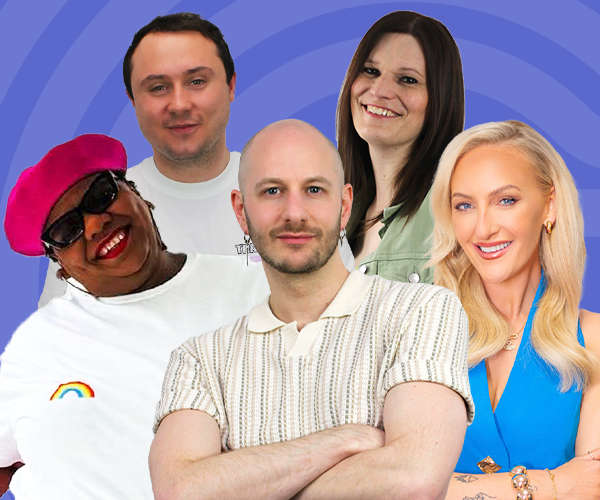Why Pronouns?
Why do pronouns matter?
You may have seen or heard someone at Gaydio or the Gaydio Academy clarifying their pronouns in a context where that might have seemed unnecessary or superfluous. Here's the thinking behind the practice and some helpful resources to aid understanding and build bridges within our community and beyond...
Often, people make assumptions about the gender of another person based on the person’s appearance, mannerisms or name.
This presents two problems.
- Firstly,the assumption can be incorrect and as a result, someone is 'misgendered'.
- Secondly, and perhaps most importantly,making an assumption in the first place enforces the notion that a person must look or act in a certain way in order to be a particular gender.
Respect
In the same way that it would be offensive to make up a random name for someone and call them that nickname against their will, it can be offensive to guess at someone's pronouns and use the incorrectly assumed pronouns when that isn't how the person wants to be known.
Worse still, actively ignoring a person's chosen pronouns is an act of oppression and entrenches the idea that intersex, transgender, nonbinary, and gender nonconforming people do not (or should not) exist.
Solidarity
"But I know XYZ's gender is ABC - they don't need to tell me or remind me"
Appearing or naturally 'acting' in a way that aligns with characteristics that the bulk of people might associate with your gender (or pronouns) is a privilege. It makes your life easier, since it isn't necessary to correct other people's assumptions about your gender or pronouns.
The trouble is, by simply going about your life, you are unwittingly entrenching the very process of making assumptions around gender identity.
Sharing your pronouns is an act of disruption to the privilege of assumption and a way of showing solidarity with the trans, nonbinary and gender nonconorming population.
Further Reading
There's loads of resources on pronouns across the internet, including at pronouns.org as well as at Sonewall's 'Beginner's Guide To Pronouns'.
If you work within the media, or content creation and need advice on referring to, engaging with or reporting on the LGBTQ+ community, both GLAAD's Media Reference Guide and the NLGJA's LGBTQ+ Style Book offer advice on inclusivty around the use of language.



